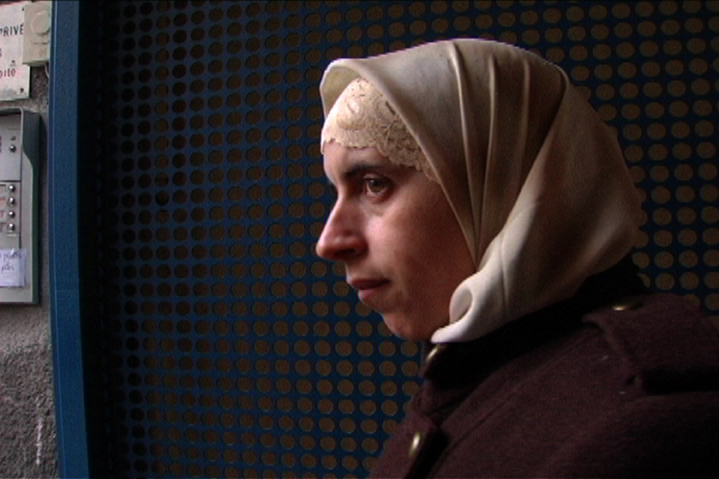 |
||||
Still from The Way North: Maghrebi Women in Marseille. |
||||
Journal Issue 2.1
Spring 2010
Edited by Deanna Utroske, Julie Ann Salthouse, Jillian Hernandez, and
Karen Alexander
Editorial Assistant: Katherine O’Connor
The Way North: Maghrebi Women in Marseille. Directed by Shara K. Lange. New York: Third World Newsreel, 2008.
Reviewed by Catherine Raissiguier
The Way North by Shara K. Lange offers a provocative look at three immigrant women engaged in carving out a place for themselves and their families in the bustling city of Marseilles. A timely engagement with issues of gender and immigration in France, Lange’s documentary can be used in Women’s Studies classes that focus on international and transnational dynamics and those that deal more specifically with the topic of immigration. However, because The Way North offers little in terms of context, instructors will have to put the documentary in dialogue with other texts providing the factual and theoretical frames that can help students make sense of the important issues it raises.1
The Way North explores the themes of self-definition, family, belonging, and exclusion by focusing on the narrative of Fatima Rhazi, who came to France from Morocco in the 1980s. An independent and strong-willed woman, she is shown bent on challenging the gender and racial status quo on both sides of the Mediterranean. The film documents Fatima’s trajectory from her early struggles to establish herself as a woman photographer (both in Morocco and in France) to her activist work with Women from Here and Afar (Femmes d’ici et d’ailleurs), the nongovernmental organization she founded and still runs in Marseilles.
Fatima’s story mirrors and frames those of two younger women who find their way to the organization, and within it, befriend her. Hadja and her family, who fled the Algerian civil war, now live in Marseilles, undocumented and homeless. The film portrays Hadja’s battle to obtain papers and documents her extremely vulnerable situation. Much less precarious is the position of Itto, a young woman from Morocco who married a man named Aziz and migrated to France to live with him. Like Hadja, Itto meets Fatima through Women from Here and Afar. She makes great use of the organization and the services it provides. Itto’s growing ease with Marseilles and France (its idiom and culture) makes her, in fact, much less reliant on Fatima and her organization as her story unfolds.
Together, these three trajectories suggest both the continuity and the enormous variations that exist within the life experiences of immigrant women in Marseilles and elsewhere. Immigrant women occupy a wide range of social locations depending on the time and the conditions under which they arrived in the country, their familial situation, and their legal status in France. The Way North documents the daily struggles that these women wage to become full participants in the place they now inhabit and how they are transformed in the process.
Catherine Raissiguier teaches Women’s and Gender Studies at New Jersey City University. She is the author Becoming Women/Becoming Workers: Identity Formation in a French High School (Albany: SUNY Press, 1994) and Re-Inventing the Republic: Gender, Migration, and Citizenship in France (Stanford, CA: Stanford University Press, 2010).
Copyright © 2014. All rights reserved.